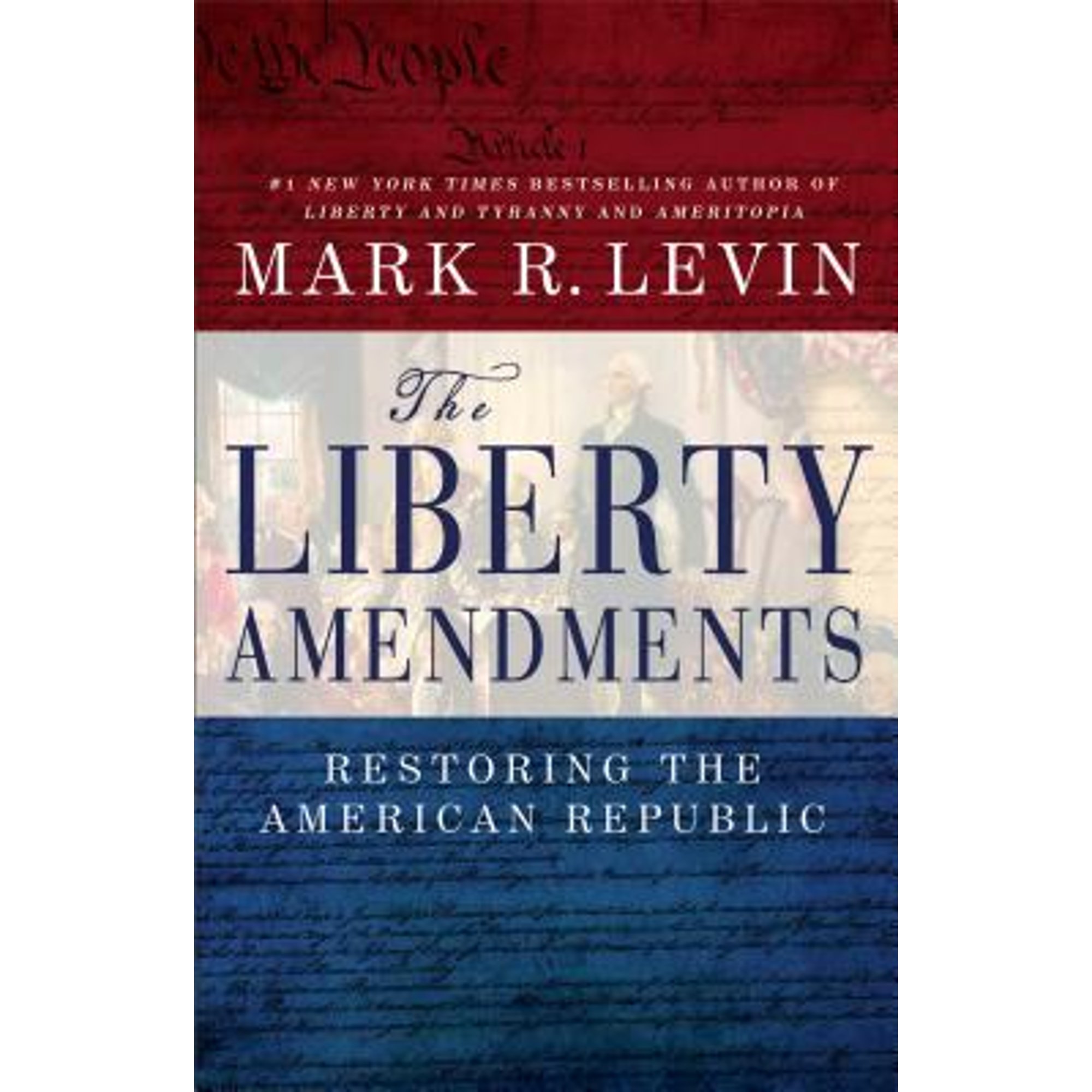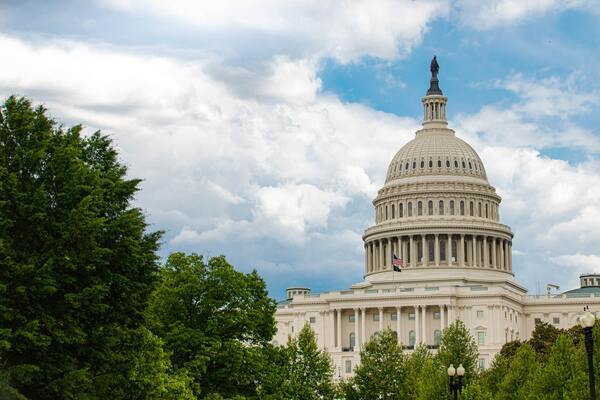Background: This is the fourth in a series of blog posts about Mark Levin’s excellent and inspiring book, The Liberty Amendments. I hope to convey Levin's major messages and inspire others to engage in the Convention of States (COS) project and join its underlying and growing grass-roots movement to restore liberty and self-governance. I also hope to inspire you to read this book. The prior article in the series summarizes Levin’s arguments for Congressional Term Limits. In a nutshell, time in office means power and money. These are as old and corrupting as human nature itself. Voting is not working to overcome the deficiencies of incumbency and the much needed turn-over in Congress. A term limits amendment would mandate turn-over, and satisfy the quest for, and popularity of, those among We the People.
Chapter 3 proposes restoring power to the states — restoring the constitutional republic — and decentralizing DC’s power by repealing the 17th amendment. Four sections are proposed:
Four sections are proposed:
- “The Seventeenth Amendment is hereby repealed. All Senators shall be chosen by their state legislatures as prescribed by Article I.”
- “This amendment shall not be so construed as to affect the term of any Senator chosen before it becomes valid as part of the Constitution.”
- “When vacancies occur in the representation of any State in the Senate for more than ninety days the governor of the State shall appoint an individual to fill the vacancy for the remainder of the term.”
- “A Senator may be removed from office by a two-thirds vote of the state legislature.”
This would return electing or filling vacancies of Senators by the fifty States through their legislatures. During ratification of the Constitution, quoting Levin,
“Many were fearful that the new federal government would seize state authority and centralize power. The state legislatures’ role in selecting senators was considered one of the most significant firewalls. There was never serious consideration of the direct popular election of both houses of Congress.”
Levin quotes James Madison’s explanation in Federalist 39, “While the House, elected directly by the people in proportion to the populations of the various states, was a national body, “[t]he Senate, on the other hand, will derive its powers from the States as political and coequal societies; and these will be represented on the principle of equality in the Senate, as they now are in the existing Congress.” Madison contended that this was distinctive to a federal government of a constitutional republic, rather than a unitary national entity. The latter being corruptible as power is centralized, which has certainly come to pass. The framers created differing power structures and rules for composing the House and Senate in order to diffuse power, and align the Senate with We the People who are better represented by our State Legislature. Levin is not alone in calling for a repeal: joining him are COS grassroots activists among We the People; see pieces 1, 2, 3. As well as more well-known voices such as Huckabee and West, Santorum, Meckler, to name a few.
During ratification of the 17th amendment, the American people were sold a promise that it would promote democracy, and through direct elections make senators more accountable and beholden to the people. As we saw in Chapter 2, the power of accumulated time in office and incumbency is extremely high. Turnover in Congress has become very low over time, as has accountability to We the People. This is no coincidence given human nature, as the framers cogently recognized in the diffused and decentralized structures and checks and balances that they created.
Levin looks at the aftermath:
“And what of the post–Seventeenth Amendment Senate? Rather than spending time conferring with the elected state officials who would have sent them to Washington, D.C., and representing primarily state interests in the Senate, these senators now spend more time with, and are more beholden to, Washington lobbyists, campaign funders, national political consultants, and national advocacy organizations. In fact, states are often viewed as little more than another constituency, one among hundreds, with interests that may or may not be relevant to or comport with a senator’s political and policy ambitions.”
In other words (not Levin's but mine; mine follow), the Senators interests have become national instead of local or provincial – focused on DC, instead of focused on We the People back in their home state. Sadly, this is the withered condition of the US constitutional republic. In passing the 17th amendment, the statists used the guise and propaganda of “democracy”. Instead self-governance from the people was instead centralized in DC where it can instead be “lobbied and managed”.
A current, common refrain among political actors across the political spectrum is that we must “Save our democracy!” in order to rationalize taking some national, political action. Watch and listen carefully; this is often a ruse to take our liberties and subvert our will, and instead centralize it in the hands of DC politicians, bureaucrats, lobbyists, and other national actors. This is exactly the successful play they ran from the statist play book when passing the 17th amendment. For a recent example, to “Save our democracy!” the Electoral College must be abolished and instead select the President by popular vote, say the nationalists. Any of We the People who reside in states with small populations would have diminished voices in the selection process for that important role.
Be wary of democracy-saving or -bolstering arguments using popular vote as a remedy. The 17th amendment serves as a cautionary tale. The will of We the People was subverted and the 17th amendment ratified, separating Senators from the people and subjecting them to the power, influence, and centralized “handlers" in DC. Instead, those “Save our democracy!” words became constitutional republic-withering and slowly -destroying. Structural checks, balances and counter-balances in governance were foremost in the minds of the framers. Through structure they were focused on counteracting human nature, especially the immutable desire for power and money. The framers had learned through history how previous civilizations were destroyed by their corrupting influence.
Fortunately, Article V gives We the People (as well as Congress) the ability to amend the Constitution to address unintended consequences, or changes in the sentiments of We the People. The 21st amendment repealed the 18th - Prohibition. Which amendment will repeal the 17th?
Side note: the 17th amendment was ratified in 1913, which was a very concerning year for our republic. The balance of power between We the People versus DC tipped significantly toward the latter, lowering individual liberty, and increasing the big, administrative state. The progressive, centralizing statists were in overdrive in 1913, also establishing the Federal Reserve central banking system. The 16th amendment was also ratified that year, establishing the Federal Income Tax. Both have significantly increased the funding of the leviathan in DC and undermined We the People’s financial well-being through inflated currency and the loss of the value of the dollar, and taxation through involuntary coercion.
Please read Levin’s book for more of the fascinating historical foundation as well as the current rationale for the need to restore the Senate and repeal the 17th amendment. And, please sign the petition and consider volunteering to join the strong and growing COS grassroots movement. Your fellow Americans need you and your State Legislatures to check politicians and government officials. This was intended and obligated through Article V, and DC will not do it themselves.






